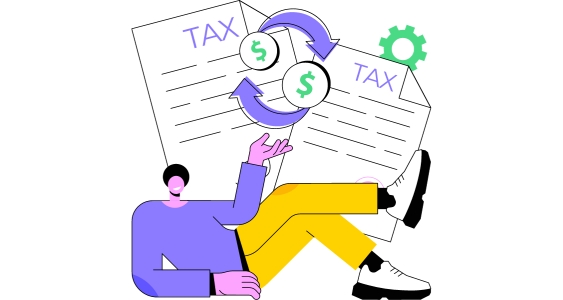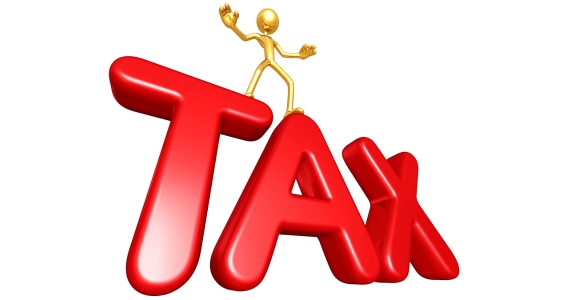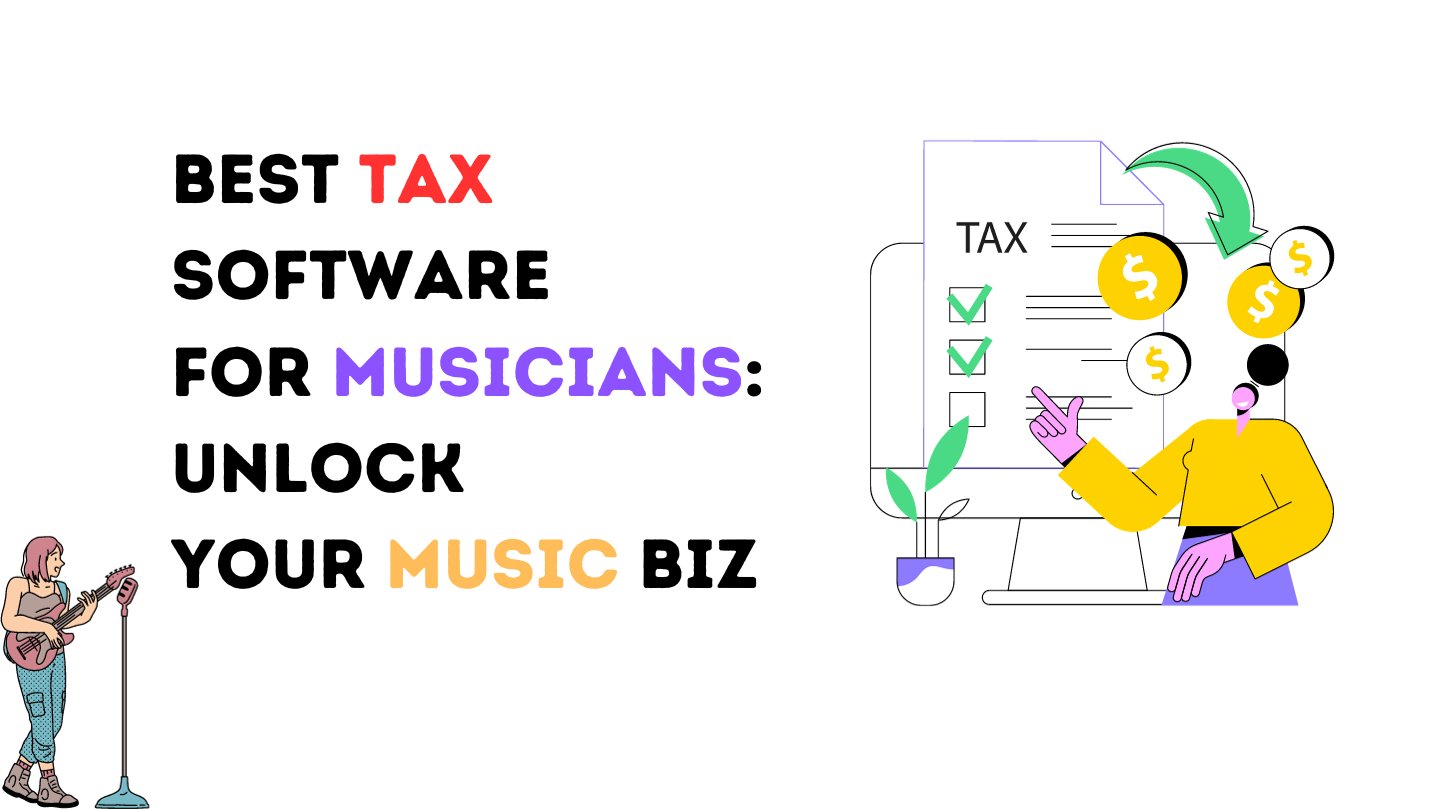Whether you love playing live shows in front of an audience or making beats with your friends, being a musician is awesome. And if you make money doing it, that’s even better. But, if you make $600 or more, you need to pay taxes on it. To simplify the process, consider exploring specialized tax software for musicians tailored to your unique financial needs.
While it’s the dream of many self-employed musicians to make money, nobody likes to pay taxes. But it’s a necessary evil, as the alternative is a fine or jail time.
Thankfully, there are tons of software that makes tax payments automatic and simple. So, if you’re an artist running your own music business, here are four tax software for musicians worth looking into.
For more tips for music business taxes, check out this guide on music taxes.
4 Tax Software for Musicians
Before we start, it’s important to note that self-employed musicians are independent contractors. This means that it helps to find tax software that helps them estimate self-employment tax.
Below, you’ll learn more about four different tax software for musicians that include this feature as an option.

1. QuickBooks Self Employed – Completely Hands Off
QuickBooks Self Employed is ideal for independent contractors of all types. It syncs directly with your bank account, estimates your quarterly tax payments, and connects with government systems to help you make electronic tax payments. Those three features require a bit of setup, but make everything else very hands-off.
After connecting with your bank account, QuickBooks Self Employed lets you categorize transaction into personal and business expenses. By categorizing your bank transactions, you can reduce your tax liability, reducing the estimated tax payment amount QuickBooks reports to you.
From personal experience, QuickBooks is pretty accurate but doesn’t claim to be a tax expert. Instead, that’s left to its built-in TurboTax integration, which waives the $100 payment you normally make for being self-employed and using their services. The direct integration saves you time from needing to collect multiple 1099s, which can be a hindrance if you return to the same venues.
QuickBooks isn’t perfect, as its estimates are sometimes off (causing you to adjust your plans). The built-in invoicing systems are also not as helpful for bands. Also, if you have a proper business, you might be better served by the regular version of QuickBooks. You could also say the same for Keeper Tax.
2. Keeper Tax – Incredibly Simple
Keeper Tax is another simple piece of tax software for self-employed individuals. Like QuickBooks, it integrates with your bank and tracks your transactions. You can then categorize those expenses into different categories, changing your tax estimate. It’s also exclusive to the mobile app, which makes it unique.
Keeper Tax is more for beginners who want to learn more about income taxes. It includes several guides on the app, making it easy to self-educate and ensure you’re taking the right deductions. Not all of this information is exclusive to musicians however, you’ll find things that apply to different businesses.
Keeper Tax makes it easy to differentiate sources of income. You can separate your income into different job types. For example, you might be a musician and a freelance writer, and both job types expand your potential deductions. This saves you time from needing to dig through 50+ deduction types (which is what QuickBooks has you do).
But being overly simple has some notable drawbacks: namely that it doesn’t have any way to make electronic payments to the government for you. This means you’ll have to make these payments manually and track them in a separate document. The result is a cheaper product with a few extra steps.
3. FreshBooks – Powerful Invoicing Features
Like QuickBooks, FreshBooks is known for being simple and working across many integrations. Because of these features, FreshBooks costs more than QuickBooks ($30 vs $26). But these extra costs come with some extra features.
FreshBooks’ strongest feature is its built-in invoicing, which lets you track mileage, inventory, and invoices. You can find out when customers view and pay invoices, making it easy to know the status of your customers. As a modern paid musician, having an invoicing system is a must if you want to bill your venues.
You can also invite your accountant, run financial reports, and check on business help. FreshBooks also supports recurring billing, which can be handy for some businesses. However, you’ll find that these features are less than helpful for some musicians. But, you could get creative with this, using this subscription-type billing to offer unique features for fans.
Like all the other tools on this list, FreshBooks automatically categorizes transactions for you. But unlike QuickBooks, you can’t create bank rules, so you’ll have to review these transaction categories for accuracy. Given that the goal is to avoid having to stare at your taxes, FreshBooks might not be for you.
4. Zoho Books – Free and Comprehensive
Zoho is unique because it provides many solutions to businesses. Its Zoho One platform includes a CRM, mail, and invoicing system. But, its shining jewel is the free software that connects to your bank and creates invoices. This makes it more helpful for businesses with limited budgets still trying to start, but its usefulness for musicians might not be as vital.
“Free” is usually enough for most people, as musician budgets can be tight. It’s also pretty powerful for most musicians, often providing more than they need. Features like customer portals and charts of accounts might not be necessary for the regular musician. But, as the musician grows, this software could become incredibly helpful in tracking their taxable income.
Invoicing is limited to 1,000 total, which is more than enough for most bands. Its optional features for creating a company mail, a CRM (customer relationship manager), and a security system could also be helpful. But, for most musicians, Zoho is a bit too much and ends up costing more as you grow, which is a problem when packed with unnecessary software.
What Tax Software Should I Pick?

The best tax software for you depends on your needs. While QuickBooks is best for the self-employed, KEeper is better if you prefer simplicity. Meanwhile, FreshBooks and Zoho are both ideal if you’re looking for more features (or free starting tools).
Whatever you prioritize, you’ll find it here. This is true whether you are a musician who loves to look at their taxes or wants to stay as far away as possible.
See Also: How To Harness The Power Of Social Media For Music Artist Growth










